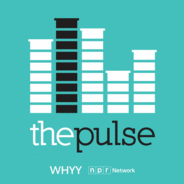Every day, our bodies come in contact with all kinds of potentially harmful things that we can't always see or smell — but which can have real consequences for our environment and health. On this episode, we explore exposure from sunlight to black plastic to hazardous chemicals from the East Palestine train derailment, and ask how we can protect ourselves.Learn more about sponsor message choices: podcastchoices.com/adchoicesNPR Privacy Policy

Wissenschaft & Technik
The Pulse Folgen
Go on an adventure into unexpected corners of the health and science world each week with award-winning host Maiken Scott. The Pulse takes you behind the doors of operating rooms, into the lab with some of the world's foremost scientists, and back in time to explore life-changing innovations. The Pulse delivers stories in ways that matter to you, and answers questions you never knew you had.
Folgen von The Pulse
177 Folgen
-
Folge vom 31.01.2025Exposure
-
Folge vom 30.01.2025Finding your 'Sleep Groove'In college, Olivia Walch was a self-described "sleep deprivation cowboy." She would go days with only 3 to 4 hours of sleep and then binge sleep at other times. But soon, it all caught up with her. Now, she's a sleep researcher at the University of Michigan with a simple message: Sleep regularity is key — as is darkness. She joins host Maiken Scott to discuss her new book "Sleep Groove: Why Your Body's Clock Is So Messed Up And What to Do About It."Learn more about sponsor message choices: podcastchoices.com/adchoicesNPR Privacy Policy
-
Folge vom 23.01.2025The DIY Medicine MovementDIY culture is all about teaching yourself new skills to do things on your own. But what happens when the DIY approach extends to something as complicated as medicine?We hear about a man who developed a cure for his persistent infection in his garage, find out why so many people are flocking to DIY medicine, and learn how one researcher carefully evaluates his patients' DIY approaches.Learn more about sponsor message choices: podcastchoices.com/adchoicesNPR Privacy Policy
-
Folge vom 16.01.2025Beyond Human ConversationHumans have long dreamed of communicating with other species, from plants and animals to extraterrestrials. On this episode, we explore different efforts to break down the communication barrier with other forms of life.Learn more about sponsor message choices: podcastchoices.com/adchoicesNPR Privacy Policy
